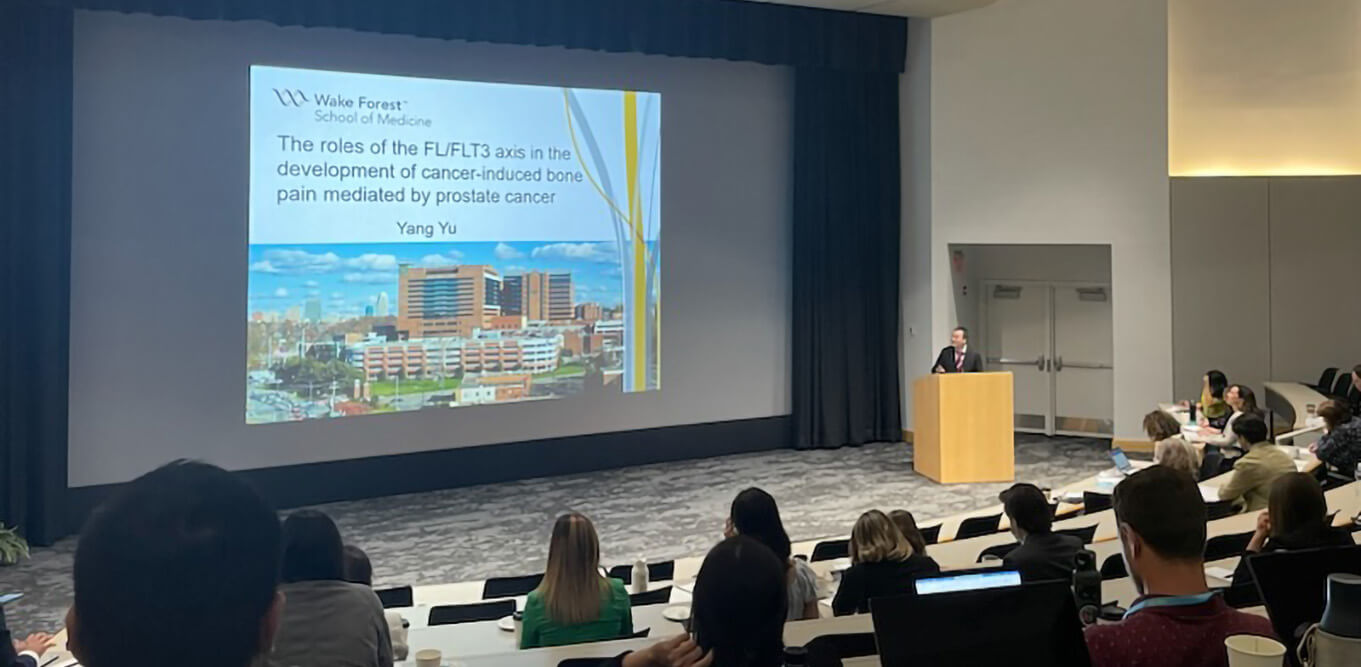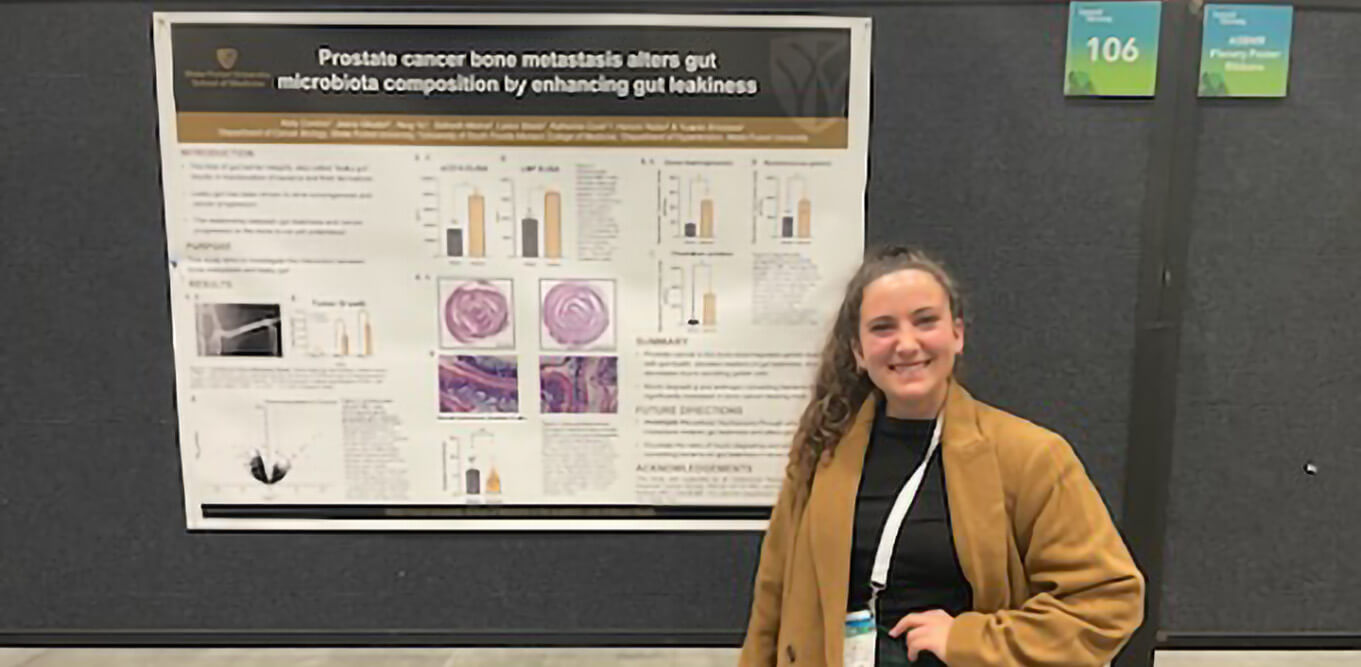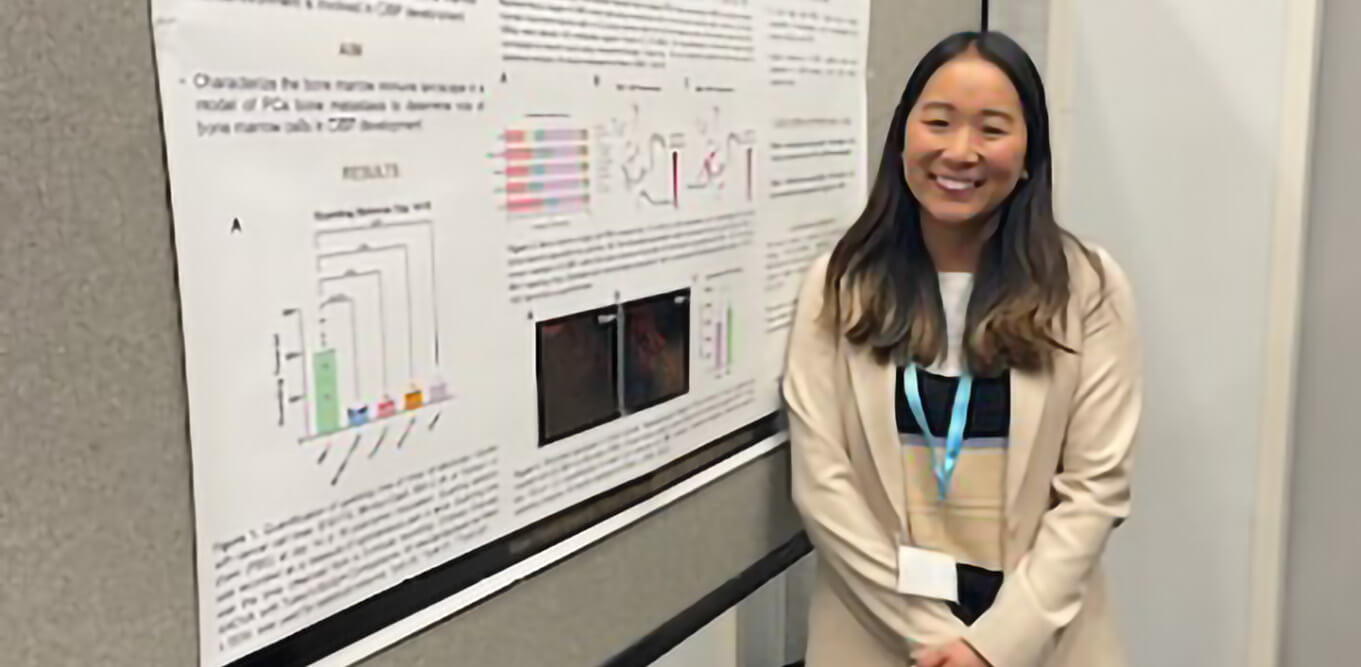
Patients with bone metastases and their families pay a tremendous price physically and emotionally. As a physician dealing with patients suffering from bone metastases, I realized that there was a need to learn more about how primary tumors progress to co-opt bone marrow in order to improve patient outcomes. My current research now focuses on elucidating mechanisms of cancer-induced bone pain, explicating the crosstalk between the gut and bone metastasis, and determining mechanisms of treatment-related adverse events.
Our Research Interests

Determine how the crosstalk between metastatic cells and marrow nerve cells controls bone cancer pain.
Cancer-induced bone pain (CIBP) is the most common and intractable symptom in cancer patients with bone metastases and can substantially impair quality of life (QoL). About 80% of patients with bone metastases present with CIBP, yet CIBP still remains a therapeutic challenge. This is due in part to the lack of understanding regarding the mechanisms behind this diseases.
Our group focuses on the fundamental mechanisms behind the crosstalk between metastatic cells and bone marrow nerves and how this interaction contributes to CIBP. I believe that the insights derived from our investigations will lead to new strategies to improve the quality of life of cancer patients.

Understand the crosstalk between gut microbiota and bone metastatic prostate cancer.
In a state of dysbiosis, the intestinal physical, biochemical, and immune barriers separating gut bacteria from systemic circulation become compromised. This loss of gut barrier integrity, known as “leaky gut”, has been implicated in the pathogenesis of numerous diseases, including cancer. Leaky gut has been shown to drive tumorigenesis and cancer progression, including in prostate cancer. However, the relationship between leaky gut and metastasis, specifically to the bone, remains largely unexplored.
Our group focuses on understanding the mechanisms through which the crosstalk between the gut and bone metastasis occurs. I believe that the knowledge gained from this project will help improve outcomes for patients with bone metastatic prostate cancer.
Elucidate the mechanisms behind chemotherapy-induced peripheral neuropathy.
While chemotherapy is the standard of care treatment for many cancer patients, a common side effect, chemotherapy-induced peripheral neuropathy (CIPN), is the leading cause of treatment discontinuation or dose reduction and a major survivorship challenge for patients. Unfortunately, current therapies ultimately fail to reduce CIPN symptoms in the clinic.
Our group focuses on understanding the role of cutaneous neuro-immune interactions and the influence of cancer itself on CIPN development. I believe the results of our studies will advance our understanding of molecular mechanisms that contribute to this debilitating sequela and pave the way for future targeted treatments to improve patient outcomes.Determine how the bone marrow microenvironment affects the bone metastatic process.
The bone marrow microenvironment influences how disseminated tumor cells are regulated, but how it does so in active bone metastasis remains unclear.
Our group aims to identify molecular mechanisms behind the mysterious but crucial roles bone marrow resident immune cells play in bone metastasis. Immune cells have been known to participate in the tumor microenvironment, but full understanding of their function in active bone metastasis remains elusive. I am confident that targeting metastatic tumor cells alone is of limited therapeutic value; targeting the microenvironment as well is critical for eliminating bone metastasis.








